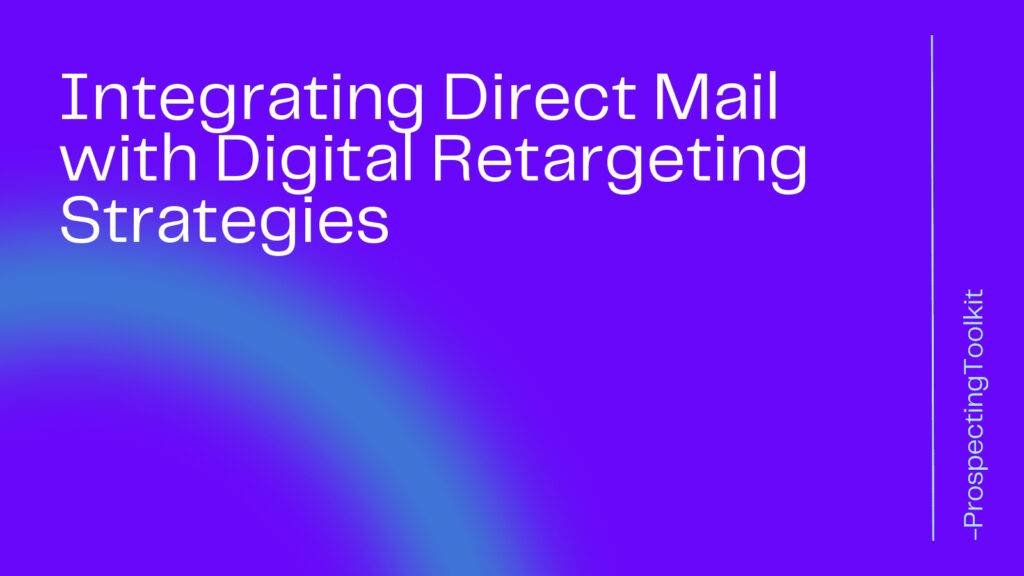For productized services businesses, finding your niche is crucial for success.
A niche is a specialized segment of the market that caters to a specific audience with unique needs and preferences.
By identifying and targeting a niche, you can position yourself as an expert in a particular area and attract customers who are willing to pay a premium for your specialized services.
In this comprehensive guide, we will delve into the art of niche selection and provide you with actionable strategies to find your profitable service specialization.
Whether you are a seasoned entrepreneur or just starting your business journey, this guide will equip you with the knowledge and tools to make informed decisions and carve out your own niche in the market.
Table of Contents
Toggle1. Understanding the Importance of Niche Selection
Choosing a niche is like finding a needle in a haystack. It requires careful consideration and analysis to identify a gap in the market that aligns with your skills, interests, and target audience. Here are some key reasons why niche selection is crucial:
- Reduced Competition: By targeting a specific niche, you can differentiate yourself from the competition and establish yourself as a go-to expert in that area. This reduces the level of competition you face and increases your chances of success.
- Higher Profit Margins: When you specialize in a niche, you can charge higher prices for your services. Customers are often willing to pay a premium for specialized expertise and personalized solutions to their unique problems.
- Increased Customer Loyalty: By catering to a specific audience, you can build strong relationships with your customers. They will see you as a trusted advisor who understands their needs and can provide tailored solutions, leading to long-term loyalty and repeat business.
2. Conducting Market Research
Before diving headfirst into niche selection, it is essential to conduct thorough market research. This step will help you gain valuable insights into the market landscape, customer behavior, and potential opportunities. Here are some key steps to follow:
- Identify Target Audience: Determine who your ideal customers are. Understand their demographics, interests, pain points, and buying behavior. This will help you tailor your services to meet their specific needs.
- Analyze Competitors: Research your competitors who are already operating in your desired niche. Identify their strengths, weaknesses, pricing strategies, and unique selling propositions (USPs). This analysis will help you differentiate yourself and find gaps in the market that you can capitalize on.
- Explore Market Trends: Stay up-to-date with the latest industry trends and developments. This will help you identify emerging niches and opportunities that are aligned with market demands.
3. Identifying Your Passion and Expertise
To truly excel in your chosen niche, it is crucial to align it with your passion and expertise. Here are some steps to help you identify your areas of interest and expertise:
- Self-Reflection: Take some time to reflect on your skills, experiences, and passions. What are you genuinely passionate about? What are your strengths and areas of expertise? Identifying these will help you find a niche that aligns with your interests and allows you to leverage your expertise.
- Market Demand: While it is essential to choose a niche that aligns with your passion, it is equally important to ensure that there is sufficient market demand for your chosen niche. Conduct market research to validate the demand and potential profitability of your niche.
4. Analyzing Competitors and Market Gaps
Once you have identified your passion and expertise, it’s time to analyze your competitors and identify market gaps. Here are some steps to follow:
- Competitor Analysis: Identify your main competitors in the niche you are considering. Analyze their offerings, pricing, marketing strategies, and customer reviews. This analysis will help you understand the competitive landscape and identify areas where you can differentiate yourself.
- Identify Market Gaps: Look for gaps in the market that your competitors are not addressing or are not addressing effectively. These gaps represent opportunities for you to position yourself as a unique and valuable service provider.
5. Evaluating Profitability and Demand
While passion and expertise are essential, it is equally important to evaluate the profitability and demand of your chosen niche. Here are some steps to help you evaluate the potential profitability and demand:
- Market Size and Growth: Evaluate the size and growth potential of your target market. Is it large enough to sustain your business in the long run? Are there any emerging trends or changes inconsumer behavior that could impact the demand for your services?
- Competitive Landscape: Assess the level of competition in your chosen niche. Are there already established players dominating the market? If so, how can you differentiate yourself and attract customers?
- Pricing and Profit Margins: Research the pricing strategies of your competitors and determine if there is room for you to offer premium services at higher price points. Calculate the potential profit margins to ensure that your niche is financially viable.
6. Testing and Validating Your Niche
Before fully committing to your chosen niche, it is crucial to test and validate its viability. Here are some steps to help you test and validate your niche:
- Minimum Viable Product (MVP): Develop a minimum viable product or service that showcases your expertise and addresses the needs of your target audience. Test it with a small group of customers to gather feedback and make improvements.
- Customer Surveys and Interviews: Conduct surveys and interviews with your target audience to gather insights and validate the demand for your services. Ask questions about their pain points, preferences, and willingness to pay for specialized solutions.
- Pilot Projects: Offer your services on a limited scale to a select group of customers. Monitor their feedback, satisfaction levels, and willingness to continue using your services. This will help you gauge the potential success of your niche.
7. Building Your Brand and Marketing Strategy
Once you have validated your niche, it’s time to build your brand and develop a marketing strategy to attract your target audience. Here are some key steps to consider:
- Brand Positioning: Clearly define your unique value proposition and positioning in the market. Communicate how your specialized services can solve the specific problems of your target audience.
- Content Marketing: Create valuable and informative content that showcases your expertise and addresses the pain points of your target audience. Use search engine optimization (SEO) techniques to optimize your content for relevant keywords and improve your visibility in search engine results.
- Social Media Marketing: Leverage social media platforms to engage with your target audience, share valuable content, and build brand awareness. Use targeted advertising to reach potential customers who fit your niche.
- Networking and Partnerships: Build relationships with other professionals and businesses in your niche. Collaborate on projects, share referrals, and leverage their networks to expand your reach and attract new customers.
100 Profitable Niche Ideas for Productized Services
- E-commerce stores specializing in handmade crafts
- Subscription box services for organic skincare products
- Personal branding for life coaches
- Digital marketing for local restaurants
- Pet accessory brands
- Eco-friendly home products
- Boutique fitness studios
- Online language learning platforms
- Virtual event planning services
- Sustainable fashion brands
- CBD wellness products
- Digital art marketplaces
- Health and wellness bloggers
- Specialty coffee roasters
- Online fitness programs for seniors
- Educational toy manufacturers
- Travel bloggers and influencers
- Plant-based meal delivery services
- Luxury real estate agents
- Online therapy platforms
- Podcast production services
- Wedding planners specializing in destination weddings
- Non-profit organizations focused on environmental conservation
- Sustainable agriculture initiatives
- Mobile app development companies
- Cryptocurrency investment firms
- Vegan food bloggers
- Virtual interior design services
- Online course creators in personal finance
- Niche software solutions for small businesses
- DIY home improvement bloggers
- Influencers in the mindfulness and meditation space
- Remote work productivity tools
- Digital marketing for dental practices
- Niche dating apps
- Wellness retreats and spas
- Online tutoring platforms
- Specialty tea brands
- Home automation systems
- Sustainable energy solutions providers
- Fashion subscription boxes
- Online boutique clothing stores
- Online music lessons
- Virtual reality gaming companies
- Holistic health practitioners
- Financial planning services for millennials
- Sustainable living bloggers
- Online cooking classes
- Online marketing for independent artists
- Eco-friendly cleaning products
- Urban gardening initiatives
- Online vintage clothing stores
- Food truck businesses
- Online platforms for freelance creatives
- Eco-tourism operators
- Digital marketing for renewable energy companies
- Boutique wineries
- Virtual assistant services for entrepreneurs
- Online coding bootcamps
- Self-publishing authors
- Food bloggers focusing on regional cuisines
- Remote work tools for distributed teams
- Artisanal chocolate brands
- Sustainable tourism operators
- Online plant nurseries
- Freelance writing services for niche industries
- Subscription services for eco-friendly household products
- Niche podcast hosting platforms
- Digital marketing for luxury car dealerships
- Online vintage furniture stores
- Eco-conscious fashion bloggers
- Online cooking ingredient delivery services
- Sustainable urban planning initiatives
- Personal finance apps for freelancers
- Virtual reality travel experiences
- Natural skincare brands
- Online courses for remote work skills
- Specialty alcohol distilleries
- Digital marketing for boutique hotels
- Online platforms for independent filmmakers
- Niche fitness apparel brands
- Online platforms for eco-friendly travel accommodations
- Virtual reality training simulations for industries
- Eco-friendly landscaping services
- Online platforms for sustainable investing
- Personalized nutrition coaching services
- Virtual reality therapy solutions
- Eco-conscious home renovation services
- Digital marketing for outdoor adventure companies
- Online platforms for sustainable fashion resale
- Customized meal planning apps
- Sustainable transportation solutions
- Digital marketing for organic food delivery services
- Online platforms for sustainable farming education
- Eco-friendly event planning services
- Online platforms for responsible tourism experiences
- Digital marketing for renewable energy startups
- Virtual reality art galleries
- Eco-friendly architecture firms
- Online platforms for ethical and sustainable fashion brands
These niches span various industries and cater to different consumer preferences and market demands, offering ample opportunities for a productized digital marketing agency to specialize and thrive.
Frequently Asked Questions (FAQ)
How do I know if my chosen niche is profitable?
Conduct thorough market research to evaluate the demand, competition, and potential profit margins in your chosen niche. Look for indicators such as market size, growth trends, and customer willingness to pay for specialized services.
Can I change my niche after I have already established my business?
While it is possible to change your niche, it can be challenging and may require rebranding and rebuilding your customer base. It is important to carefully consider your decision and assess the potential impact on your business before making any changes.
How long does it take to establish yourself as an expert in a niche?
Establishing yourself as an expert in a niche takes time and consistent effort. It can vary depending on factors such as the level of competition, your marketing strategies, and the quality of your services. Be patient and focus on delivering value to your customers.
Should I narrow down my niche or target a broader audience?
While targeting a broader audience may seem appealing, narrowing down your niche allows you to specialize and differentiate yourself from the competition. By catering to a specific audience with unique needs, you can position yourself as an expert and attract customers who are willing to pay a premium for your specialized services.
How can I stay updated with the latest trends and developments in my niche?
Stay active in industry forums, attend conferences and webinars, and follow thought leaders in your niche. Engage with your target audience and listen to their feedback and suggestions. Continuous learning and staying informed will help you stay ahead of the curve and adapt to changing market dynamics.
Conclusion
Finding your profitable service specialization through niche selection is a journey that requires careful analysis, market research, and self-reflection.
By identifying a niche that aligns with your passion and expertise, you can position yourself as an expert and attract customers who value your specialized services.
Remember to continuously evaluate and adapt your niche as market dynamics evolve.
With the right strategies and a commitment to excellence, you can carve out your own space in the market and achieve long-term success.







